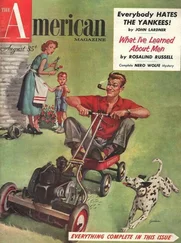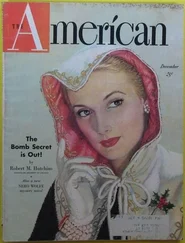I greeted him. He said, “Hello, Goodwin,” strode in and past me, and on to the office. I followed and crossed to my desk, noting that instead of going for the red leather chair he was taking a yellow one, indicating that I and not Wolfe was it this time. I told him that Wolfe would not be available for two hours, which he knew already, since he was as familiar with the schedule as I was.
“Will I do?” I asked.
“You will for a start,” he growled. “Last night a woman was murdered, and your fresh fingerprints are on her luggage. How did they get there?”
I met his eye. “That’s no way to do it,” I objected. “My fingerprints could be found on women’s luggage from Maine to California. Name and address and description of luggage?”
“Priscilla Eads, Six-eighteen East Seventy-fourth Street. A suitcase and a hatbox, both light tan leather.”
“She was murdered?”
“Yes. Your prints were fresh. How come?”
Inspector Cramer was no Sir Laurence Olivier, but I would not previously have called him ugly. At that moment it suddenly struck me that he was ugly. His big round face always got redder in the summertime, and seemed to be puffier, making his eyes appear smaller but no less quick and sharp. “Like a baboon,” I said.
“What?”
“Nothing.” I swiveled and buzzed the plant rooms on the house phone, and in a moment Wolfe answered.
“Inspector Cramer is here,” I told him. “A woman named Priscilla Eads has been murdered, and Cramer says my fingerprints are on her luggage and wants to know how come. Have I ever heard of her?”
“Confound it.”
“Yes, sir. I double. Do you want to come down here?”
“No.”
“Shall we go up there?”
“No. You know all that I do.”
“I sure do. So I unload?”
“Certainly. Why not?”
“Yeah, why not. She’s dead.”
I hung up and turned to Cramer.
I am inclined to believe that Cramer has a fairly good understanding of Wolfe in most respects, but not all. For instance, he exaggerates Wolfe’s appetite for dough, which I suppose is natural, since if he goes on being an honest cop, which he is, the most he can ever expect to get is considerably less than Wolfe pays me, whereas Wolfe’s annual take is well up in six figures. I admit Wolfe is not in business for my health, but he is quite capable of letting a customer leave the premises with a dime for carfare or even a buck for a taxi.
However, Cramer is not under that impression, and therefore, when he learned that we had no client connected in any way with Priscilla Eads, now that she was dead, and apparently no prospect of any, and hence no fee to build up and safeguard, he started calling me Archie, which had happened before, but not often. He expressed appreciation for the information I provided, taking a dozen pages of notes in his small neat hand, and asking plenty of questions, not to challenge but just to elucidate. He did offer a pointed comment about what he called our dodge with Helmar, with his ward upstairs, and I rebutted.
“Okay,” I told him, “you name it. She came here uninvited, and so did he. We had made no engagement with either one. They couldn’t both have what they wanted. Let’s hear how you would have handled it.”
“I’m not a genius like Wolfe. He could have been too busy to consider taking Helmar’s job.”
“And use what to meet his payroll? Speaking of busy, are you too busy to answer a question from a citizen in good standing?”
He looked at his wrist. “I’m due at the DA’s office at ten-thirty.”
“Then we’ve got hours — anyhow, minutes. Why did you want to make it so tight about the time Helmar left here? It was shortly after ten, and it was more than an hour later that Miss Eads left.”
“Uh-huh.” He got out a cigar. “What paper do you read?”
“The Times , but today I’ve seen only page one and sports.”
“It didn’t make the Times. A little after one o’clock last night the body of a woman was found in a vestibule on East Twenty-ninth Street. She had been strangled with some kind of cord, not very thick. There was trouble identifying her because her bag had been taken, but she lived in a nearby tenement and it didn’t take too long. Her name was Margaret Fomos, and she worked as a maid at the apartment of Miss Priscilla Eads on Seventy-fourth Street. It was a full-time job, but she lived on Twenty-ninth Street with her husband. She usually got home around nine, but last evening she phoned her husband that she wouldn’t arrive until eleven. He says she sounded upset, and he asked her why, and she said she would tell him when she saw him.”
“So she was killed about eleven o’clock?”
“Not known. The building on Seventy-fourth Street is a private house done over into luxes, one to a floor, except Miss Eads — she had the two top floors — and the elevator is self-service, so there is no staff around to see people coming and going. The ME puts it between ten-thirty and midnight.”
Cramer glanced at his wrist, stuck the cigar between his teeth at the left corner of his mouth, and clamped down on it. He never lit one. “I was home in bed. Rowcliff took it. He had four men on it, following routine, and around four o’clock one of them, a young fellow named Auerbach, decided he had brains and he might as well give ’em a chance. It occurred to him that he had never heard of a bag-snatcher going so far as to strangle the victim, and there was no evidence of any attempt at rape. What was there about her, or about the bag, that called for strangling? According to the husband, nothing about her, nor the bag either. But listing the contents of the bag as well as he could with the husband’s help, one item struck Auerbach as worth considering — Mrs. Fomos’s key to the apartment where she worked.”
“He’ll have your job someday.”
“He’s welcome to it now. He went to Seventy-fourth Street and rang the bell to the Eads apartment and got no answer. He got the janitor and had him open the door and take a look. The body of Priscilla Eads was there on the floor, half in a bathroom and half in a hall. She had been hit on the side of the head with the poker from her fireplace and then strangled with some kind of cord, not very thick. Her hat was lying near her, and she had her jacket on, so he had probably been there waiting for her when she came in. We’ll know more about that when we find the hackie, which should be soon with what you gave me. The ME puts it between one and two.”
“Then she didn’t go straight home. As I told you, I put her in the taxi about twenty to twelve.”
“I know. Auerbach got Rowcliff, and the boys moved in. The crop of prints was below average — I guess Mrs. Fomos was a good cleaner and duster — and the best of the lot were some nice fresh ones on the luggage. When the word came that they were yours Rowcliff phoned me, and I decided to drop by here on my way downtown. He doesn’t know how to handle Wolfe at all, and you have the same effect on him as a bee on a dog’s nose.”
“Some day I’ll describe the effect he has on me.”
“I’d rather not.” Cramer looked at his wrist. “I had it in mind to have a word with Wolfe, but I know how he is about being disturbed up there about a little thing like a homicide, and I’d just as soon take it from you, so long as I get it.”
“You’ve got it all right.”
“I believe you, for a change.” He left his chair. “Especially since he has no client, and none in sight that I can see. He’ll be in one hell of a humor, and I don’t envy you. I’ll be going. You understand you’re a material and you’ll be around.”
I said I would.
When I went back down the hall after letting Cramer out I started to re-enter the office, but suddenly braked at the door, pivoted, and made for the stairs. Two flights up, I went into the south room, stood in its center, and looked around. Fritz hadn’t been in it yet, and the bed was turned down as Priscilla had left it, with the folded coverlet on the other bed. I went and lifted the coverlet to look under it and dropped it again. I raised the pillow on the turned-down bed and glanced under that. I crossed to the large bureau between the windows and started opening and closing drawers.
Читать дальше












